Youssef Hamadi
Preference Reasoning in Matching Procedures: Application to the Admission Post-Baccalaureat Platform
Jul 29, 2017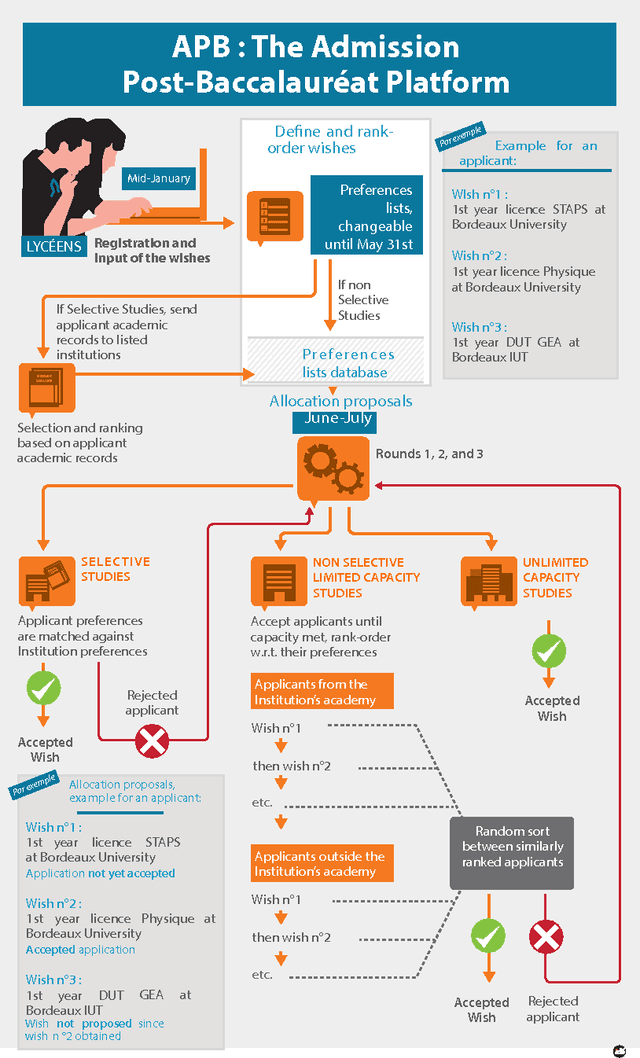
Abstract:Because preferences naturally arise and play an important role in many real-life decisions, they are at the backbone of various fields. In particular preferences are increasingly used in almost all matching procedures-based applications. In this work we highlight the benefit of using AI insights on preferences in a large scale application, namely the French Admission Post-Baccalaureat Platform (APB). Each year APB allocates hundreds of thousands first year applicants to universities. This is done automatically by matching applicants preferences to university seats. In practice, APB can be unable to distinguish between applicants which leads to the introduction of random selection. This has created frustration in the French public since randomness, even used as a last mean does not fare well with the republican egalitarian principle. In this work, we provide a solution to this problem. We take advantage of recent AI Preferences Theory results to show how to enhance APB in order to improve expressiveness of applicants preferences and reduce their exposure to random decisions.
Learning for Dynamic subsumption
Mar 31, 2009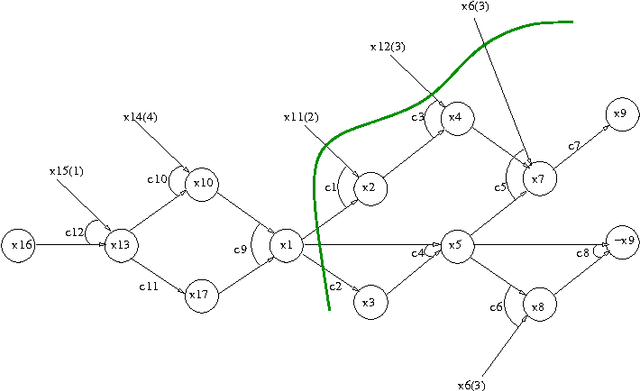
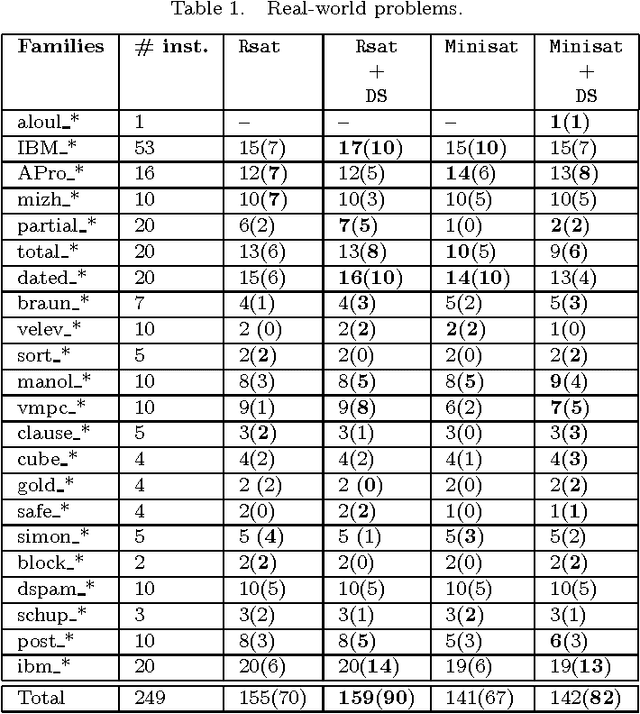
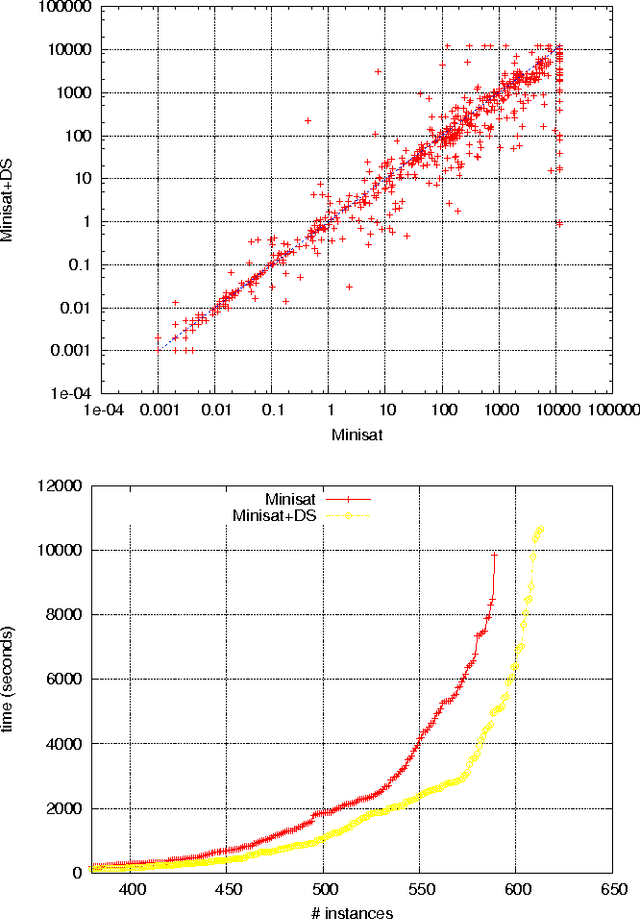
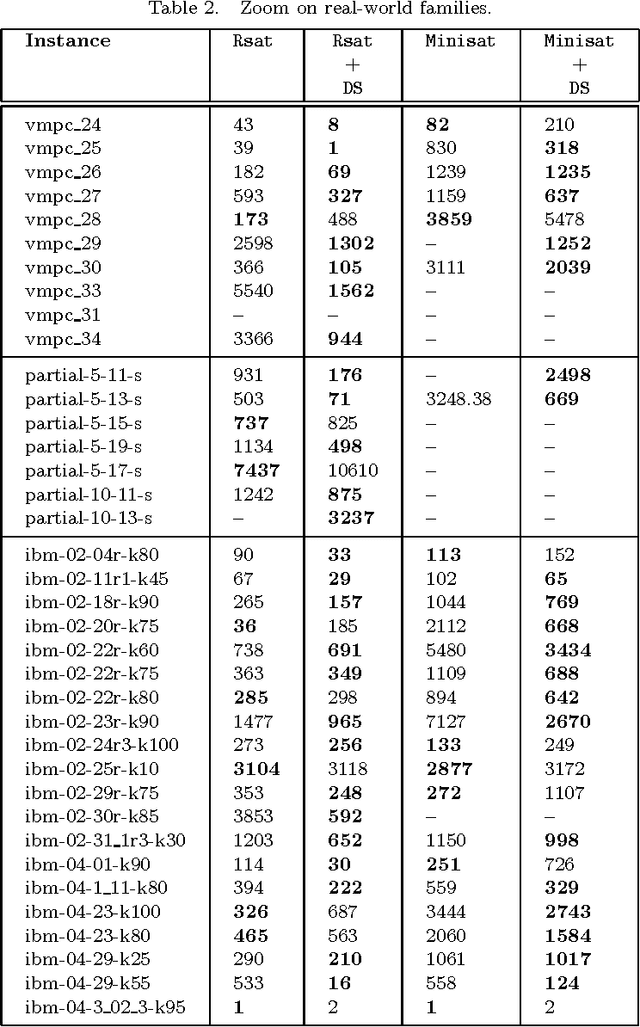
Abstract:In this paper a new dynamic subsumption technique for Boolean CNF formulae is proposed. It exploits simple and sufficient conditions to detect during conflict analysis, clauses from the original formula that can be reduced by subsumption. During the learnt clause derivation, and at each step of the resolution process, we simply check for backward subsumption between the current resolvent and clauses from the original formula and encoded in the implication graph. Our approach give rise to a strong and dynamic simplification technique that exploits learning to eliminate literals from the original clauses. Experimental results show that the integration of our dynamic subsumption approach within the state-of-the-art SAT solvers Minisat and Rsat achieves interesting improvements particularly on crafted instances.
 Add to Chrome
Add to Chrome Add to Firefox
Add to Firefox Add to Edge
Add to Edge